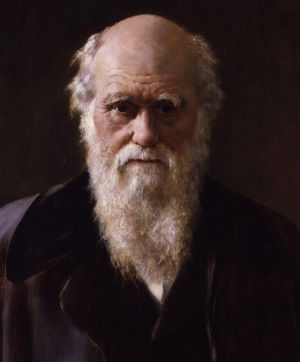3.d.1. Criticism of Neo-Darwinism
Neo-Darwinism is the scientific current that encompasses evolution theories that somehow maintain the essence of Darwinian ideas; that is, random mutations of individuals and natural selection.
It is a consequence of science development, like Mendel’s laws and genetics, and affirms that living beings' variations occur in their germination state. However, the problems remain because when science cannot explain something always argues, it is random.

Current molecular biology is discovering how nature carries out genetic verification and other controls –without knowing, a priori, the reasons justifying them– as a scientific article referred to the pieces of DNA called Histones. Nevertheless, it is not necessary to resort to such in-depth knowledge of molecular biology, given that we know that some proteins, called factors of transcription, activate or inhibit the expression of specific genes.
At the end of the ninetieth century the Neo-Darwinism was one thing; in the middle of the twentieth century, something else due to the Modern Synthesis Theory, and later on, it changed again due to the Punctuated Equilibrium.
The Neo-Darwinism maintains because it changes according to its principle of tautological adaptation. When it cannot adapt, academia recourse to biological paradoxes, but they call them isolated cases to avoid Modern Physics' similarities.
The neo-Darwinian theory is still the prevailing doctrine despite the name being considered old-fashioned. Now it is directly accepted that Darwin was right though, the reasoning will be the last update; it is not so relevant if it is the Modern Synthetic Theory or the Punctuated Equilibrium.
There is a brief description of the Neo-Darwinism in chapter 9.
3.d.2. Criticism of the Synthetic Theory of evolution
It is probably difficult for a non-biologist to distinguish between the trend of Neo-Darwinism and the Synthetic Theory; with the advancement of science, more knowledge appears, and it is necessary to change to subsist.
The Neo-Darwinian theory and the Modern Synthetic Theory –Theodosius Dobzhansky, Ernst Mayr, and George G. Simpson– are natural Darwin updates.
The name of the Modern Synthetic indicates it is a group of ideas from the development of genetics and biology. Nevertheless, at the same time, it shows there is not compact scientific knowledge about this subject, which could ensure its fundamental characteristics. Contrary to what academia insistently states, the Synthetic Theory or the Theory of Darwin are everything but scientifically proven.
Both accept the randomness of genetic information modifications; the mechanism is still natural selection, although its range of application has extended to microevolution.
Let us cite two examples:
The spermatozoon that manages to reach the ovum is its better adaptation for better guidance and more strength and luck. It is not because nature has served from the process of natural selection when it detects some problem in the production of sperm. Like in a small hit or a temperature change, to intentionally bring about some minor defect in the spermatozoon, it is not interested in stopping the production line for reasons beyond this discussion.
When an individual is sterile, it is by accident and not because nature has detected some problem in the genetic code and decided it does not want to continue that particular evolutionary line; though, the individual is healthy on the macro scale.
Appetite and reproduction
Some scientists from the USA have identified a biochemical substance in the brain that regulates appetite and reproduction. Bodyweight and fertility are firmly related, and women who are too thin, for example, can have problems getting pregnant.
El País 3-09-2008. Nature
All criticisms made about Darwin's Theory are equally applicable to Neo-Darwinism and the Synthetic Theory of Evolution. What is more, some of the complaints come from new scientific knowledge.
Nowadays, the topic of random mutations manages to survive to common knowledge about modifications taking place much more frequently in some parts of the DNA. The reasons are not chemical but somewhat logical or functional concerning the genome structure. Regardless, not even academia accepts the possibility that mutations are not random. It would be a good-bye axiom!
It would be interesting to know which statistical distribution follows famous random mutations; it should be scientific knowledge. Perhaps the expression “random mutations” means that the origin or cause is unknown in most cases.
Finally, to remark that a tautological theory cannot be scientific. Moreover, it is not acceptable to change aspects already proven because one gambles with the scientific method and common sense.
Modern science would have to be humbler and recognize neither the Evolutionary Synthesis nor the genetic modifications' random character is verified scientifically, which will not prevent being the generally accepted theory in the present.
There is a brief description of the Synthetic Theory of Evolution in chapter 9.
